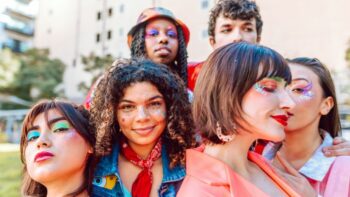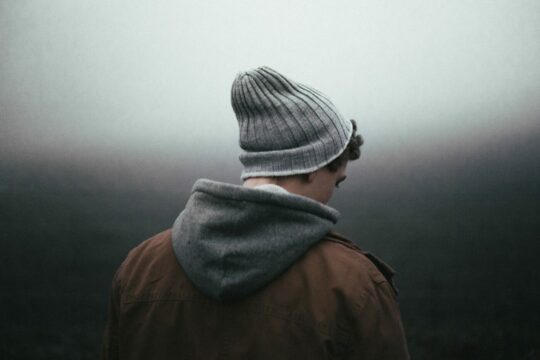
Gen Z And Nightlife | Keeping Young People Safe
Article Highlights
- Why do we need to talk about this now?
- Gen Z’s relationship with alcohol and drugs
- What’s the ultimate goal here?
- Venues and training
- In summary - what one thing would make our panellists feel safer?
Be the first to access new posts and exclusive content
At the end of February we held our annual Voxburner+ deep dive, and this time we explored the topic Gen Z and Nightlife: Keeping Young People Safe.
Our panel, made up of Liz Cheesbrough (The Good Side), Dr Adam Winstock (Global Drug Survey), Andrew Wilson and Rachel Thomsen (Urban Angels), discussed a number of important themes, exploring why this is such a pivotal time for the nightlife industry, asked what dangers young people are currently facing and shared how brands can get involved and support Gen Z.
Check out some of our highlights below.
Why do we need to talk about this now?
- “So there’s a real desire for changing culture. And I actually think there’s a real role here for honesty, in the first time to talk about these things. For safety, of course, and actually to bring back a bit of fun, going out is fundamentally enjoyable. And that’s how it should be.” Liz
- “…particularly for our generation, we were kind of locked away in what could have been, you know, are usually really transformative years of our lives. And then when we, you know, open up society again, and students want to go out clubbing and in nightlife and having a good time, you know, there’s this spiking” Andrew
- “It’s not a nice feeling to be somewhere and not only feel like something could happen, but also that no one would get in trouble for it. No one would be held up and said you’ve done something wrong.” Rachel
- “I think some young people are quite worried about the idea of intense surveillance or searching when entering in clubs, because we know that that really disproportionately affects black minority ethnic young people as well as gender-nonconforming people. So it’s truly a really cautious time.” Andrew
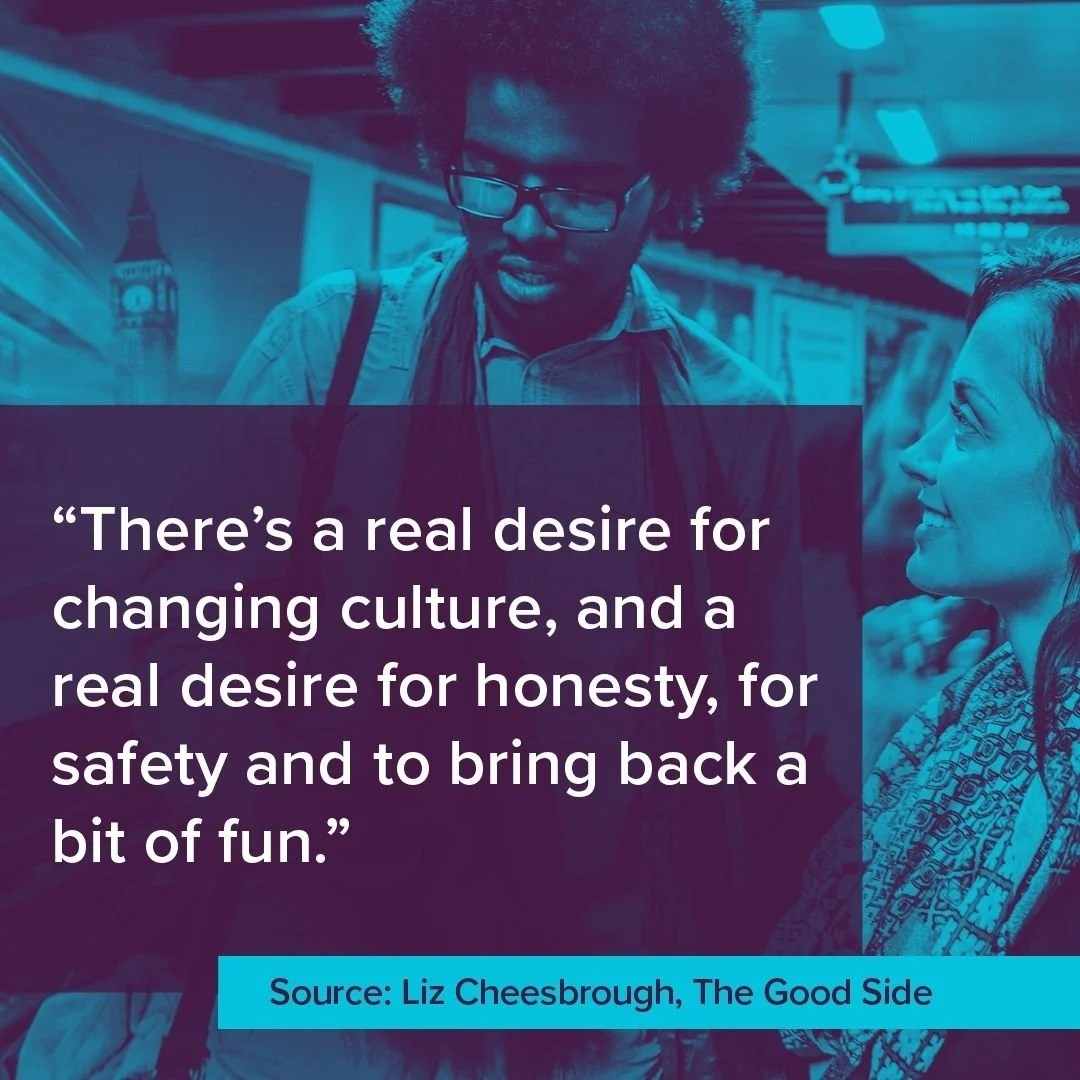
Gen Z’s relationship with alcohol and drugs
- “The reason why people are going out is in order to enjoy a good time to make memories and like way too often have those memories being of something that of exploitation or of something going wrong.” Rachel
- “Part of it is about how to look after your mates and how to have a conversation with friends who you’re worried about, because the people who can spot risk and change behaviour more than anyone else, are your mates.” Adam
- “The majority of spiking happens at house parties, but to be able to spot the signs, not just as someone in a position of power or authority, but as a peer and a human being, is that not the key thing to improving this situation?” Rachel
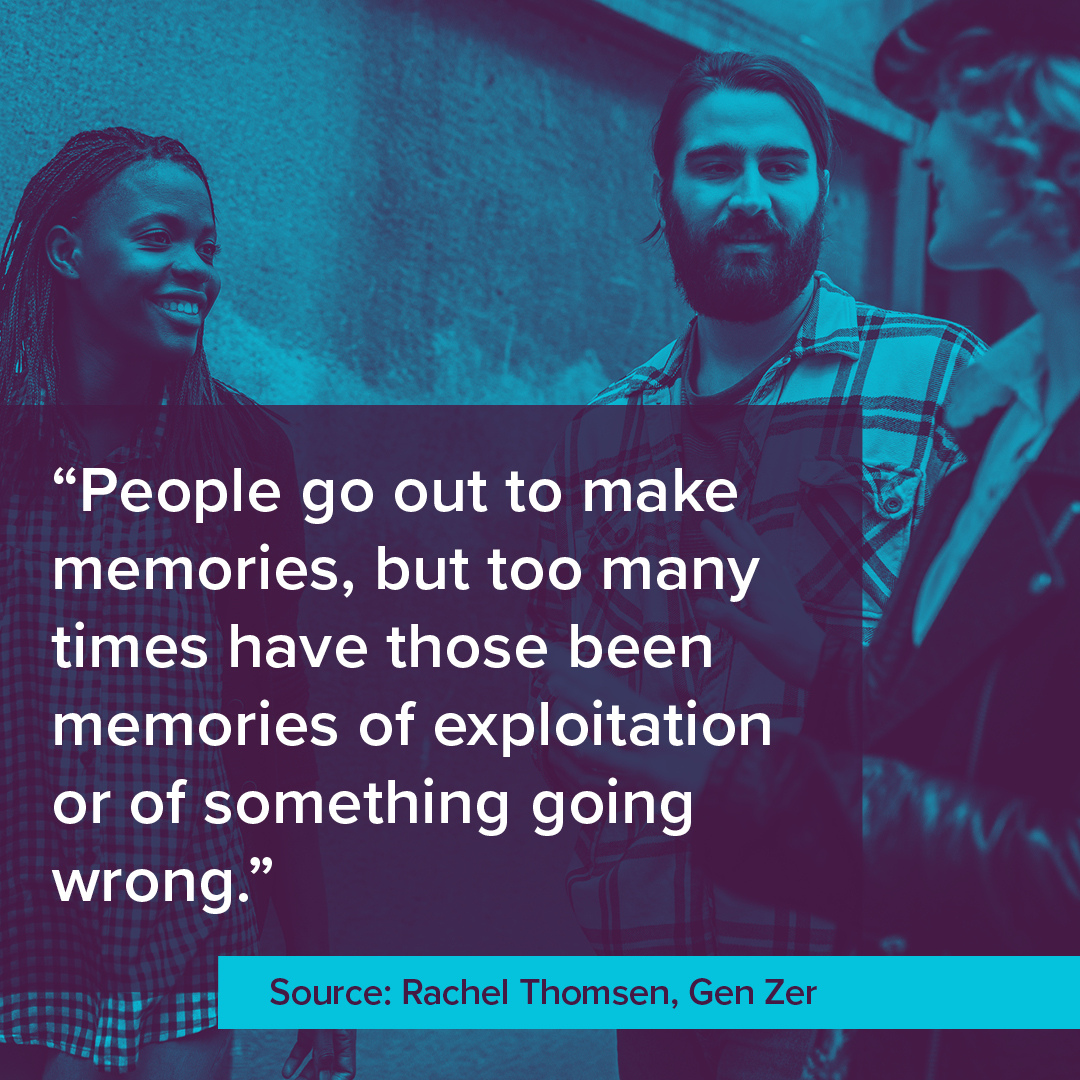
What’s the ultimate goal here?
- “The bottom line is: safer venues are more profitable venues.” Adam
- “Everybody everywhere can have a relationship to nightlife safety. And fundamentally, everybody does want to be safe and have fun.” Liz
- “There’s an absence of an honest discourse and .of young people’s use of alcohol and drugs, and, you know, fostering a place where you can talk honestly about things. That’s what I’d want.” Adam
- “I think that this honesty is partly about bringing back fun and pleasure into a narrative that’s so focused on risk and pain at the moment, as much as it is about having a much wider view of reality.” Liz
- “I think where brands can come in is actually supporting venues and having a culture where people feel much more comfortable about saying that maybe they don’t want to drink more. They don’t want to use more drugs, they want to be able to retain an ability to enjoy the evening.” Adam
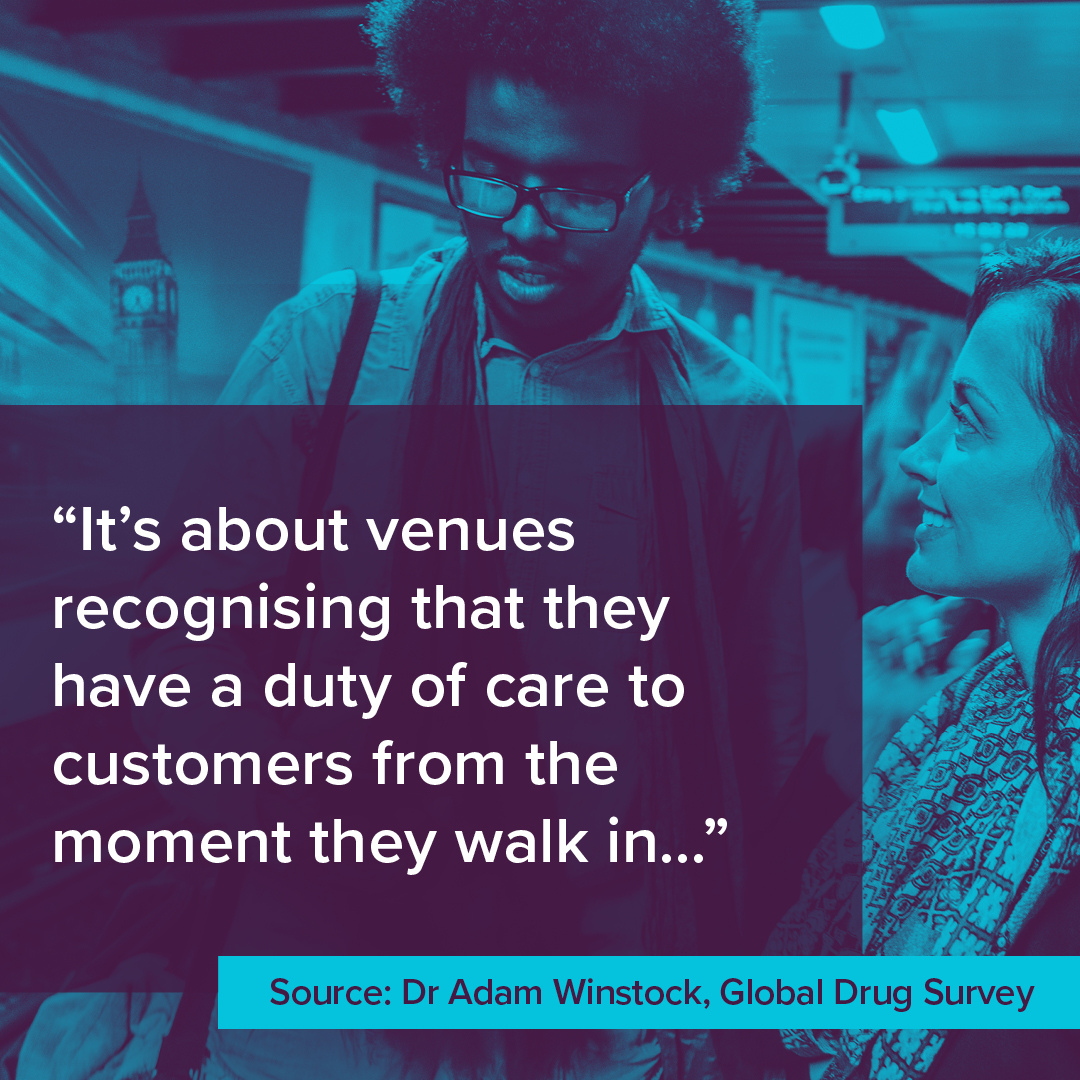
Venues and training
- “It’s all about building confidence where staff can challenge and staff can be listened to, and we develop this policy where if a staff member was concerned, then the security would really, really take that on board.” Andrew
- “We’ve created a course called Safer For All which addresses issues of your legal requirements, issues of how to respond to common presentations (people who are over-sedated, people who are confused, people who are maybe at risk of being sexually assualted).” Adam
- “If you give these skills to the bar staff, those are skills that can take into their lives, into their friendships, into their house parties… People that understand how to identify harm and vulnerability can do that anywhere in life. It’s upskilling young people to help other young people.” Liz
- “Typically, the first time security will have something to do with you is when you’ve done something wrong. Actually, it’s really important that they’re in contact throughout the course of the evening, so there’s positive contact, and that starts from the moment you arrive.” Adam
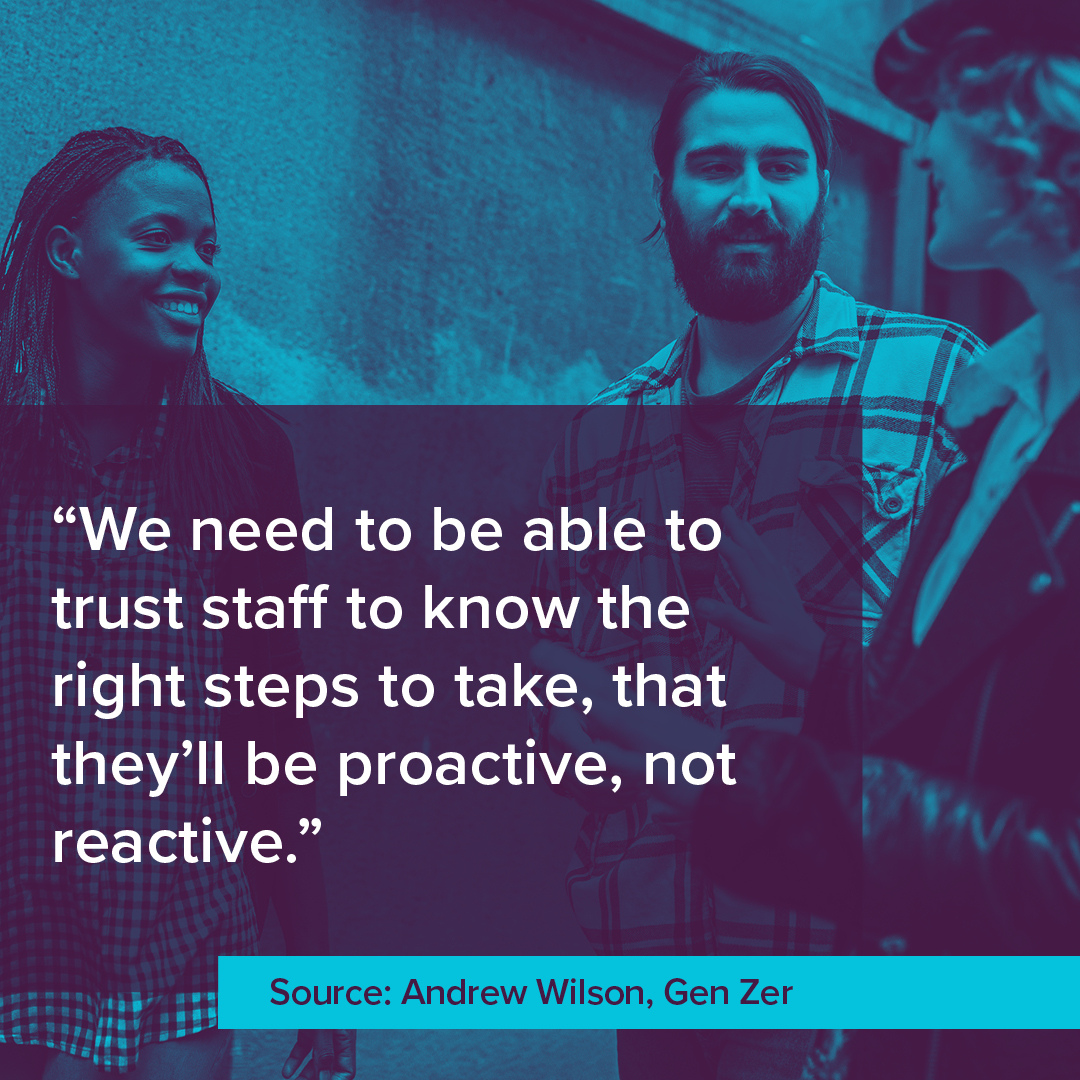
In summary – what one thing would make our panellists feel safer?
- “Shifts around social norms and gender – no quick fix but some fundamental changes would be useful.” Liz
- “Living in a non-judgemental environment where this isn’t a war against drugs and there isn’t a war against alcohol. Trying to solve these fundamental issues that are the backbone to our society, attacking those and enabling everyone to just feel happier and more comfortable with the people they’re around.” Rachel
- “Education, knowing that people are informed, trusting that the staff know what to do and that they’re proactive instead of reactive, and we know that that all comes from a good education and good training.” Andrew
Download your teaser from our exclusive Voxburner+ report now.
You can find out more about Safer For All here.


